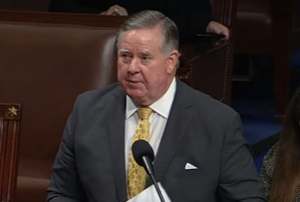
The House on Thursday began debating its $833.1 billion fiscal year 2025 defense spending bill, voting down measures that would have blocked further aid for Ukraine and removed the requirement for the Pentagon to submit unfunded priorities lists. Ahead of floor consideration, House Democrats reiterated their opposition to the bill over the Republican majority’s decision to include “extreme policy riders.” “It is a bill unfortunately detached from reality,” Rep. Joe Neguse (D-Colo.), a member of the Rules Committee, said on…

 By
By 










